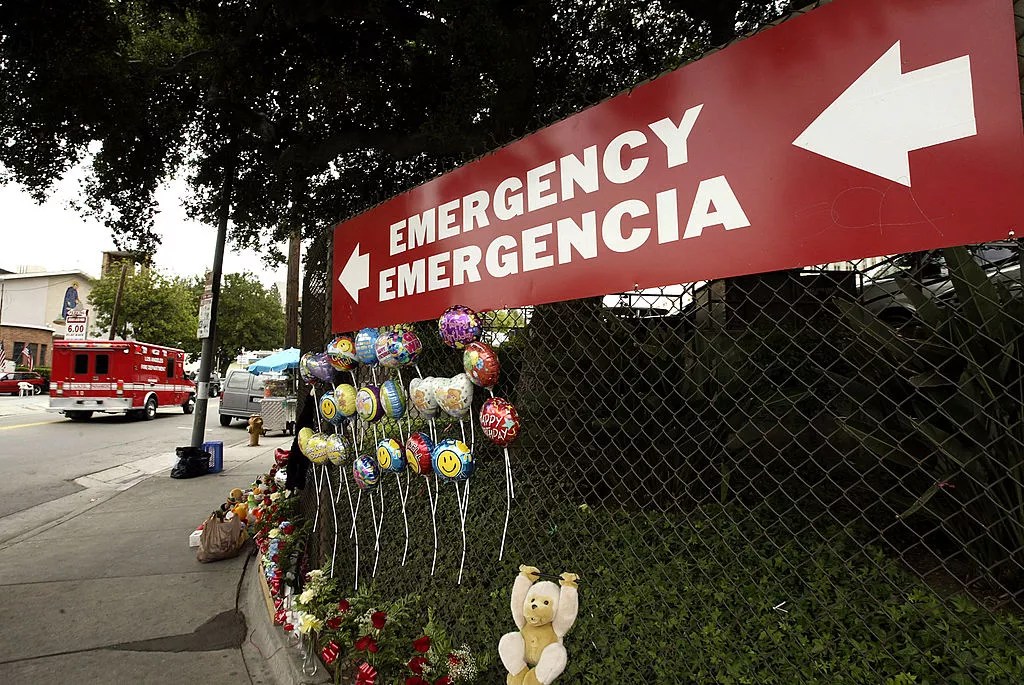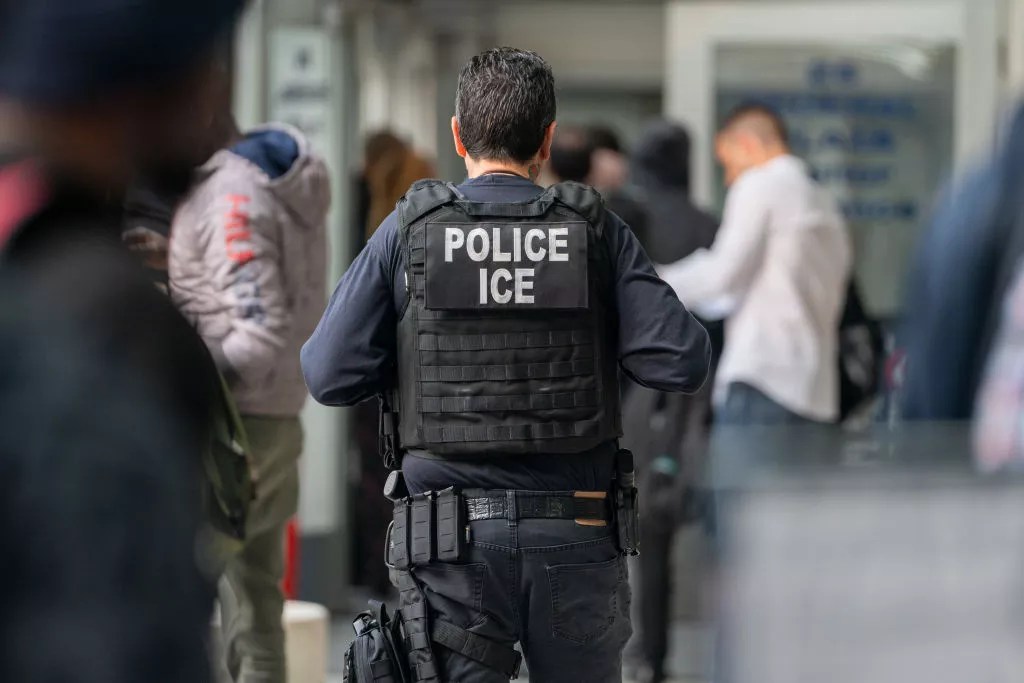
David McNew/Getty Images

Audio By Carbonatix
Over a decade ago, 22-year-old José Patiño kicked a soccer ball around a wet Phoenix field. It had rained the night prior, and as he went to give the ball another kick, his “body went one way” and his “knee went the other way.”
“It just popped,” Patiño said. He had torn the meniscus in his knee.
An undocumented immigrant at the time, Patiño was living in the heyday of Arizona’s “show me your papers” law. Former Maricopa County Sheriff Joe Arpaio also was terrorizing immigrant communities with raids on workplaces.
Patiño reasoned he could neither afford a hospital visit nor risk deportation by going to one. Instead, he relied on YouTube videos to aid in his recovery. “I was very scared,” he said.
Stories such as Patiño’s are common throughout Arizona’s immigrant and undocumented communities. Many people are scared to seek medical care for injuries or preventive care as tales swirl of young patients entering hospitals but never coming home.
“Those stories stick with the community,” said Patiño, the vice president of external affairs for the immigration advocacy group Aliento. “People are still afraid that that’s going to happen.”
Those dark days appear to be back. On Jan. 21, the Trump administration revoked a Department of Homeland Security policy that prohibited arrests by U.S. Immigration and Customs Enforcement agents at “sensitive locations,” including schools, churches and health care facilities such as hospitals. Undocumented immigrants who never felt fully comfortable seeking medical treatment now worry that a trip to the doctor could mean a flight out of the country.
Patiño, now 36, no longer fears deportation. He has Deferred Action for Childhood Arrivals status, which offers some protection. But he doesn’t want people to forgo treatment like he did. He urges undocumented Arizonans to still seek medical care but also offers advice on how to protect themselves.
“Don’t postpone or minimize the pain that you may have,” Patiño said. “You’re gonna be OK. This is gonna be safe.”
If you’re undocumented and need a doctor, here’s how to protect yourself.
What are Arizona hospitals saying?
Hospitals in Phoenix and nationwide are actively “reviewing the federal actions taken last week” to see how the policy change impacts their care. However, they will continue to “encourage individuals to continue to seek medical care when they need it,” wrote Health System Alliance of Arizona CEO Brittany Kaufmann in a statement.
The Alliance represents Banner Health, Dignity Health, HonorHealth, Tenet and Northern Arizona Healthcare. Kaufmann said its member hospital systems will “continue to comply with all state and federal laws while preserving patient access to medical care.”
In a separate statement, Banner Health said it would “work collaboratively with law enforcement agencies to protect public safety” while “complying with state and federal laws that protect patient privacy and personal information.”
So basically, a lot is up in the air. But Patiño believes hospitals “are not collaborating with ICE.”
“We’ve talked to a lot of hospitals, and they still want to operate as before because their whole job is to ensure care for individuals,” Patiño said. “They won’t want to be conducting immigration operations. That’s not what they signed up for.”

The Trump administration has authorized Immigration and Customs Enforcement agents to make arrests at schools, churches and hospitals.
David Dee Delgado/Getty Images
Where can an undocumented person in Arizona get health care?
According to the National Immigration Law Center, these health care options are available to everyone regardless of immigration status or whether or not you have health insurance:
- Basic emergency room treatment for serious medical emergencies, including labor and delivery
- Health care services from community health centers, migrant health centers and free clinics
- Services from state or local public health departments, including vaccines and screening and treatment for communicable diseases
- Programs providing health services necessary to protect life or safety, including: emergency medical, food or shelter programs; mental health crisis services; assistance for people experiencing domestic violence; crime victim assistance services and disaster relief
- Financial assistance or “charity care” programs at community health centers and most public and safety-net hospitals
Is language assistance provided at Arizona health care facilities?
Patients can ask for language assistance services at no cost at hospitals or community health centers. This can include a Spanish translator to help facilitate communication between patients and staff.
What should undocumented people bring to Arizona health care facilities?
- Photo ID, such as a consulate ID or passport
- Phone bill or another type of bill with your name on it, which is optional but helps prove your identity
- A Red Card, a double-sided wallet-sized card that features information about your constitutional rights and offers helpful tips on what to do when encountering an ICE agent
What should undocumented people in Arizona do before going to the hospital?
Aliento’s family packet makes these recommendations whether you’re going to a hospital or not:
- If you have children, give legal guardianship of them to a trusted person.
- If you own properties or a bank account, give access to another trusted individual who can use it to help you if you are detained.
What rights do undocumented people in Arizona have when seeking health care?
Under federal law, hospitals or other health care providers cannot deny someone care based on their immigration status. They will likely ask if you are eligible for public health insurance or make assumptions based on the language you speak, your ID card and a variety of other factors.
Florida and Texas require hospitals to ask patients about their immigration status, but Arizona has no such law. Arizona lawmakers attempted to pass a measure like this several years ago but were unsuccessful. However, if you are asked about your immigration status, you do not have to provide it and you cannot be denied care because of that denial.
Monica Manke is the immigration legal services program director at Friendly House, a social services nonprofit that helps immigrants. She emphasized that everyone enjoys Fourth and Fifth Amendment constitutional rights, regardless of their immigration status.
The Fourth Amendment protects against unreasonable search and seizure. This generally means that agencies such as ICE require a warrant to access private areas, including hospitals and health care centers. The Fifth Amendment grants people the right to remain silent, meaning you don’t have to talk to ICE.